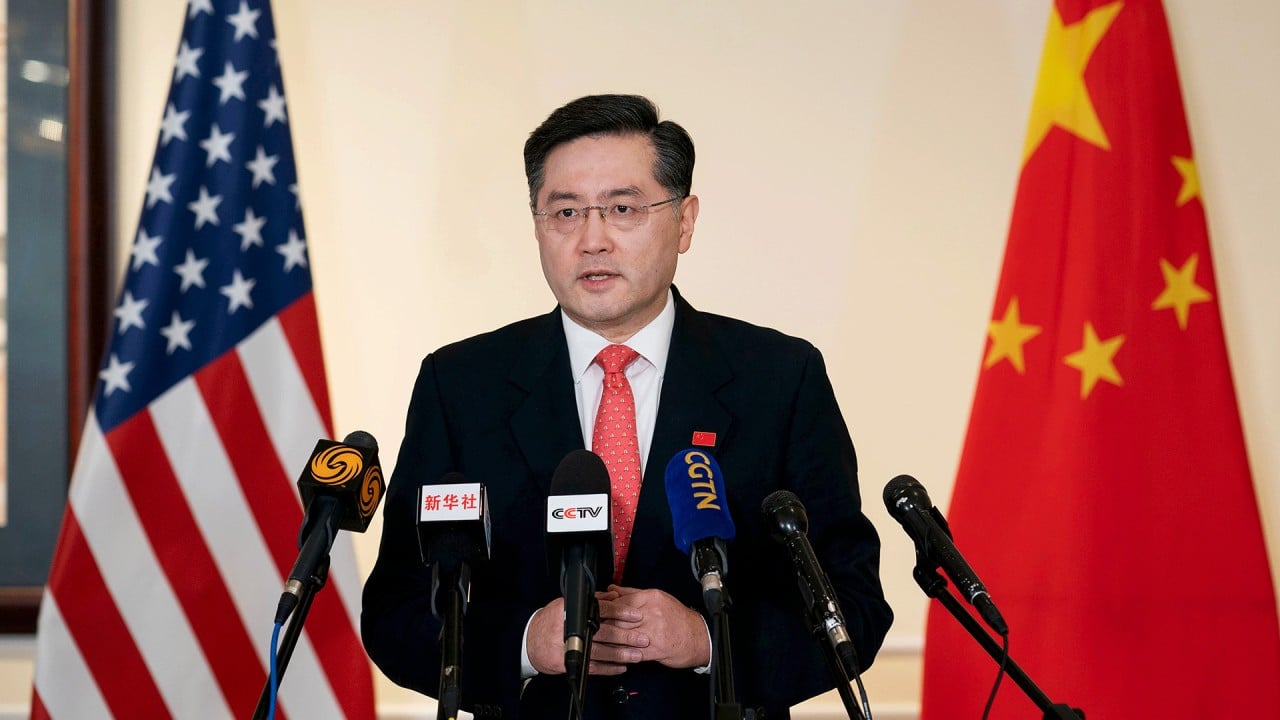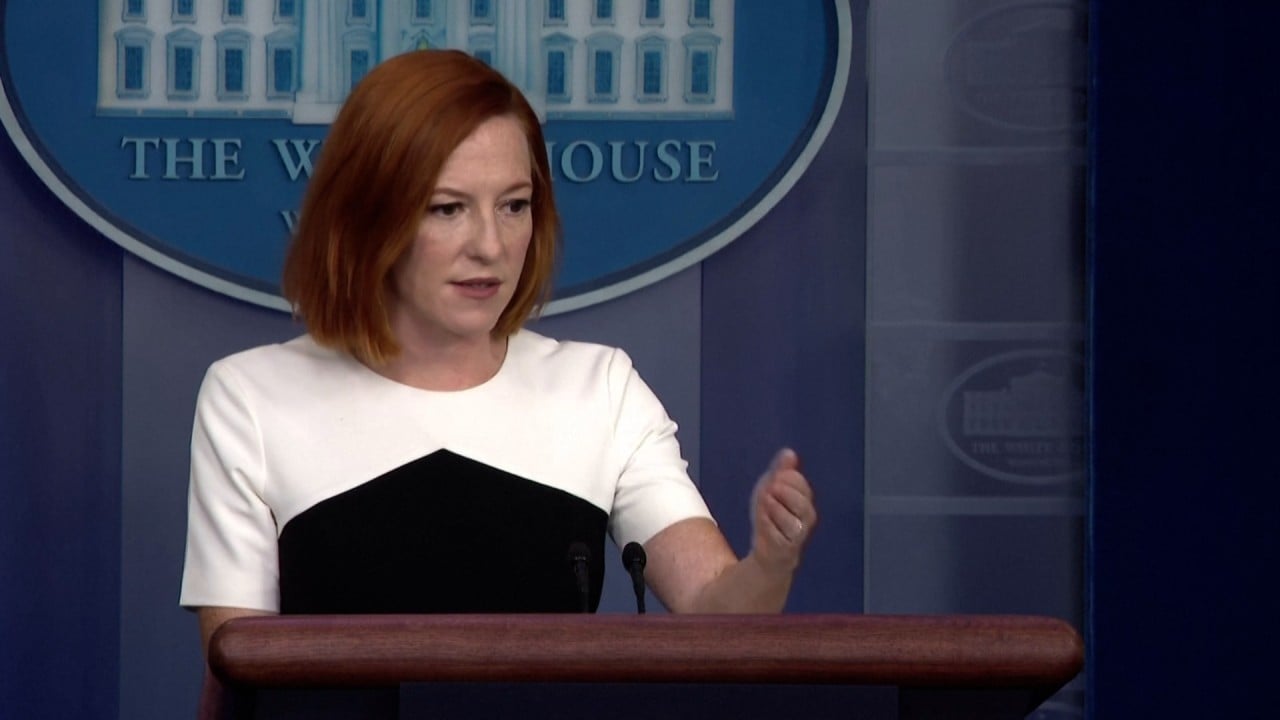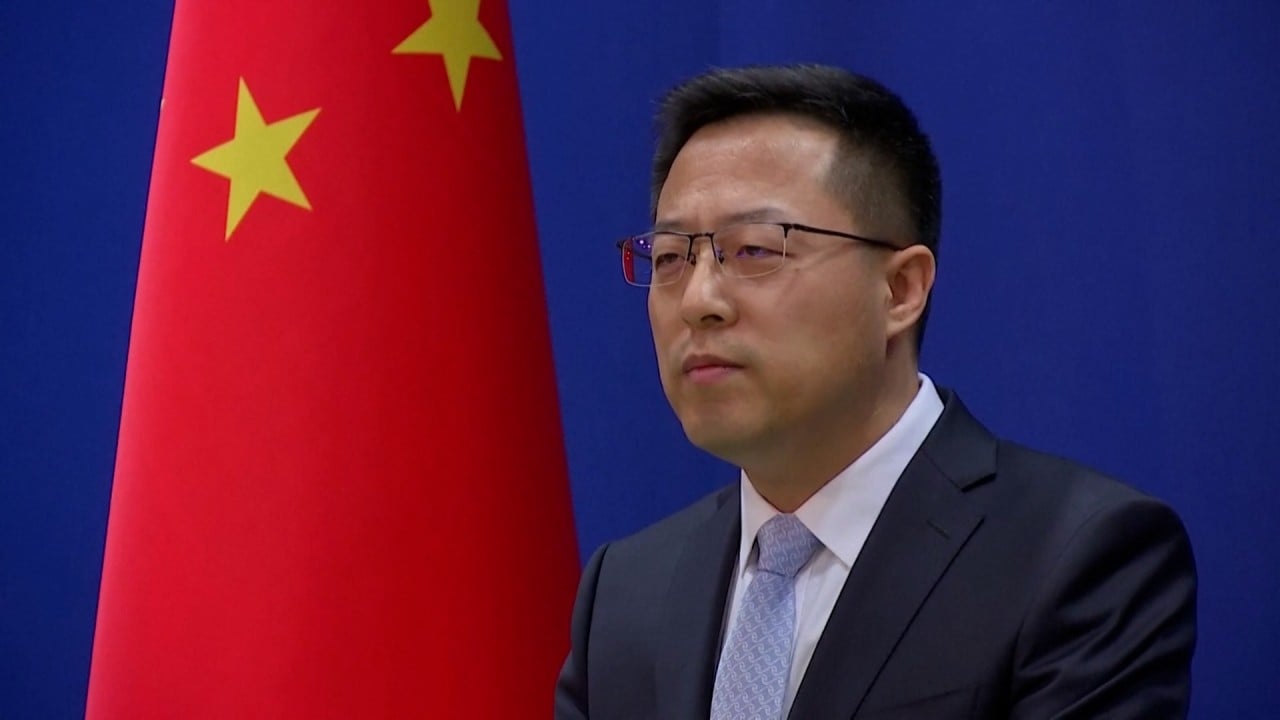
China won’t lose a new cold war because it’s not the Soviet Union, says ambassador to US
- Qin Gang tells press briefing that Beijing has learned from the fall of the USSR and will not suffer a similar fate
- Ambassador says the interests of the world’s two leading powers are intertwined
Qin Gang also urged policymakers in the US to “cautiously” manage ties with Taiwan, which he said has become a major potential flashpoint. He also said that nuclear talks with the US are unlikely, because China’s arsenal does not “match” the size of America’s.
The comments were made during a press briefing on Monday and published by the Chinese embassy on Friday.
China had been studying why the Soviet Union collapsed and had drawn lessons from that, Qin argued, adding that the Chinese Communist Party was not like its “rigid” Soviet counterpart.
He said the US is now China’s largest trading partner, while China is behind only Mexico and Canada when it comes to trade with America, adding that bilateral trade is expected to surpass US$700 billion this year.
Qin said it was wrong for Washington to use competition to define the relationship between the two countries and the US should not use competition as an excuse to contain China, by blacklisting Chinese firms and trying to squeeze the country out of global supply chains.
“Competition should not be a ‘zero-sum game’, let alone a ‘you lose, I win’ or ‘I win, you lose’, but should be fair and healthy,” Qin said.
“[China and Russia] have no choice and, just like the US and Canada, being good neighbours means being friends,” he said.
The US is seeking a trilateral nuclear arms control negotiation with Russia and China, but Beijing is unlikely to join the talks at present, Qin said.
“If China has to be brought into the negotiations, does that mean that China first has to raise its arsenal to the level of the US? Or that the US first reduces its own nuclear arsenal to China’s level?”




